London — one of the most expensive cities in the world — has prime exposure to Apple Watch, both in high-end boutiques and in two of Apple's own most impressive retail flagship stores, among the 38 total stores in the United Kingdom. Actually buying the new device in those stores, however, remains frustratingly difficult, at least for now.
Launched in London, Apple Watch is still hard to get
While still not yet available in markets including Italy, Mexico, Singapore, South Korea, Spain, Switzerland and Taiwan until June 26, the United Kingdom was among Apple's initial launch countries for Apple Watch. That means interested buyers could examine the new product and try out various models in store even before online orders began.
However, the lack of sufficient inventories to allow in store purchases meant that sales staff (and their customers) have been left frustrated that they had nothing to actually sell, apart from directing buyers to the web to place online orders. That's an issue that has dogged all of Apple's retail stores, although the situation appears to be nearing its end.
There are just over 64 million people in the UK, making Apple's 38 outlets within the nation's boundaries among the company's largest international concentrations of stores per capita. London itself accounts for 8.6 million people and hosts 5 Apple stores within its city limits, including the new Apple Watch store within Selfridges (which also sells iPhones and iPads). There are another five UK Apple Stores located between 5 and 20 miles of London, leaving the capital city and financial center awash in Apple retail locations.There are just over 64 million people in the UK, making Apple's 38 stores within the nation's boundaries among the company's largest international concentrations of stores per capita
By way of comparison, Apple has no stores in Taiwan, a nation of over 23 million people; just one Shenzhen store serving the 105 million people in China's Guangdong Province; and just three in Hong Kong, which has a population of nearly 7.2 million. Switzerland has four stores serving its population of 8.1 million.
London not only boasts lots of Apple Stores, but also is among the world's few cities hosting multiple, lavish flagship locations: Apple's own Covent Garden and Regent Street stores, as well as its store-within-a-store location at the upscale Selfridges department store.
Somewhat ironically, however, the only location where one can actually buy an Apple Watch in London right now is Dover Street Market, a boutique shop on the globe's short list of stores with actual (if limited) Apple Watch inventories, including Colette in Paris, The Corner in Berlin, Maxfield in Los Angeles and a Dover Street Market location in Tokyo.
London Regent Street
Apple's first London flagship store, on Regent Street, was installed within a historic building first constructed in 1893 (shown below shortly after its original construction) in what is now a busy shopping district located between Oxford Circus and Piccadilly Circus.
Apple leases the property (shown in its current form today, above) from The Crown Estate, representing "Her Most Excellent Majesty," doing business as Purple Investments. Apple's Regent Street store is listed on neighborhood wayfinding maps (below) as a noteworthy landmark along Regent Street.
The building's interior was remodeled several times over its first century, leaving little of historical interest inside, behind its impressive Beaux Arts facade. That allowed Apple to build a modern interior for its existing retail store back in 2004, including a millennial-modern central glass stairway that invites shoppers up into a second level of retail. Flanking either side of the stairway is a second story arcade with a glass bridge connecting the two sides together.
The launch of Apple Watch has devoted prime space on the central first floor of the store to try-out locations where buyers can examine various models and bands. The try-out areas were busy when I visited just days before official sales began, and continued to remain busy after online orders opened. However, as with Apple's other retail stores around the world, there continues to be no in-store available stock for buyers to take home.
Apple has plans in place to remodel the Regent Street location, removing its glass staircase and trimming back the second floor (and its glass bridge) in order to allow more natural light in from its large, street facing windows. The company will also be removing the series of four Apple logos that are currently installed in each window. While the main portion of the site is being remodeled, Apple will host customers in a temporary store located in the building's basement.
The remodeled store will feature two separate stairways on either side of the building, leaving more of the front of the building dramatically open, with a ceiling two stories high. The refreshed design appears similar to concept to new stores being built with open levels facing a large glass entry, with stairs to the upper level on either side rather than in the middle of the floor plan (a concept shared by many of the first Apple Stores built a decade ago).
Apple's two story flagship now under construction in San Francisco similarly replaces a floor plan dominated by a large central stairway with a floating second story accessed by stairways on the side.
London Covent Garden
In 2010, Apple opened a second, even larger London flagship retail store at Covent Garden (below, on the left), adjacent to the covered retail and street performance space known as Covent Garden Market, and situated on the pedestrian-only James Street, which stretches two blocks north to the Covent Garden Underground tube station. The heavily trafficked area is home to a variety of other international retailers, including a neighboring Burberry.
Apple's Covent Garden location is also situated in a historic building, which was remodeled in 2010 by architect Bohlin Cywinski Jackson. That's the same architect who designed Apple's high ceiling Upper West Side New York store as well as its second flagship store in Shanghai, China: the Pudong location featuring a cylindrical glass entry.
The award winning design of Apple's Convent Garden store includes a spiral glass stairway (above), a glass elevator shaft and flights of glass stairways that provide passage to its three floors.
The location also features a glass ceiling that throws natural light into enclosed courtyard of the ground floor (below), while also providing views down into the building from upper floors.
Throughout the building, exposed brick walls highlights the history of the building while steel and glass features and wood fixtures express a modernized reuse of the structure, making the entire building appealing to explore.
Apple Watch store in Selfridges Wonder Room
Apple's third lavish store sits within Selfridges, a higher end department store. Specifically, it's located in the store's "Wonder Room," which plays host to a variety of luxury brands, particularly high end watches selling for as much as a quarter million pounds (around a half million dollars).
The Wonder Room has permanent brand tenants as well as pop-up sections that cycle through various new products. One of these areas, located near the Wonder Room's street entrance (and featuring exterior facing windows), is now the new permanent home of an Apple Watch store, which appears to be staffed by employees from Apple's other retail stores.
One side benefit of Apple's Wonder Room Watch store location is that the company has street-facing windows it can use to promote Apple Watch to shoppers walking past the store (below). When I visited, the windows were emblazoned with Apple Watch signage set in front of an attention-attracting abstract display, with Watches on display.
This store-within-a-store appears to be focused on selling Apple Watch, but will also offer iPhones, iPads and accessories for sale. As with Apple's other retail stores, even its Watch-focused Selfridges location still lacks actual Watches to sell, serving for now as a just another showcase for the new product.
That is slated to change soon, as inventory grows to the point where Apple can begin stocking its own stores with Watches people can actually buy and take home.
Dover Street Market boutique
Until then, Apple's only location where people who want an Apple Watch right now can buy one (if the model they want happens to be in stock) is Dover Street Market, a boutique store located near Berkeley Square, just a few blocks south of the company-operated Regent Street store.
Dover Street Market is directly across from a Christian Louboutin men's store, and around the corner from Tiffany's, Gucci and a Montblanc outlet, situating Apple Watch among other high end fashion designers, similar to the strategy of locating an Apple Watch store within Selfridges' Wonder Room among famous brands of watches with even higher price tags than Apple's own Edition models cast in solid gold.
Along the same lines, Apple's practice of building landmark, often historic stores in major cities is intended to impress and delight buyers while also associating Apple's products with its substantial investments in building architecturally impressive retail stores.
Nearly 15 years of selective Apple Retail growth has polished Apple's brand
Fifteen ago, Apple largely relied upon store-within-a-store locations within budget-oriented, big box retail stores such as CompUSA and BestBuy. Before that, Apple's products largely sat on shelves at locations such as Sears (below) and Walmart. After nearly a decade and a half, Apple's long term retail strategy has resulted in a premium brand association for buyers around the world.
That's nowhere more obvious than in China, where Apple is focusing much of its retail growth. Rather that throwing up lots of simple storefronts, Apple is building monumental flagship stores in China (like the Hangzhou store below that recently opened for business in January), creating a brand image that sets iPhones, Macs, iPads — and now Apple Watch — apart.
That's not only radically shifting Apple's market share and sales volumes in China (where sales of iPads are growing and setting new sales records, bucking the flattening sales of tablets worldwide), but also creating a demand among affluent Chinese citizens that's often being satisfied outside of China. Due to expensive luxury taxes applied to Apple gear inside of China, many mainland buyers visit Apple stores in Hong Kong, or while on vacation in the U.S. and Europe.
Apple Store and boutique shop employees frequently referenced sales of high end products, and particularly gold Apple Watch Edition models, being sold to Chinese nationals on vacation. Shoppers visiting the UK can request a refund of Value Added Taxes on goods purchased within the country, making it even more cost effective for Chinese buyers— who now make up one of the world's largest and most important markets for high end goods— to travel expressly to buy Western goods, with Apple being among their favorite brands.
iPhone 6 grabbing new market smartphone share among UK buyers
That's not to say Apple isn't also making inroads among residents of the UK While historically England and the rest of the UK have been a stronghold for cheaper Android smartphones, the launch of iPhone 6 has made a significant impact on Apple's market share within the country.
In December, Kantar Worldpanel reported a tremendous year-over-year shift toward iOS within the UK for Q3, noting a greater than 10 percentage point change that brought Apple from 29 percent to 40 percent share, while Android, Windows and Others all experienced decreases.
Subsequent Christmas quarter sales in the UK boosted Apple's share even higher to 42 percent, while Android sales were pulled down by 10 percent over the year ago quarter. By March, Kantar reported Apple's share among new smartphone sales remained above 38 percent, holding onto gains over the previous Q1 that came at the expense of Android, BlackBerry and Windows.
Most impressively, these gains were made in the face of cheap Android options. As noted by Kantar analyst Dominic Sunnebo, "25.6% of new iOS buyers switched from Android during the quarter," despite the fact that Android remains in the lead "thanks to the price options consumers have in both the contract and prepay market."
Sunnebo further noted that in the UK, "Thirty-five percent of consumers who bought an Android smartphone in 1Q15 said their decision was driven by receiving a good price on the phone. Another 29% said that getting a good deal on the tariff/contract was a factor in their purchase."
Apple Watch opens the door to Apple Pay
Apple's iPhone 6 sales grew despite premium pricing, indicating that overall, there is large segment of smartphone buyers in the UK who make purchasing decisions based on their perception of quality, rather than just whatever's cheapest. Those buyers are also the demographic Apple is targeting with Apple Watch.
And while Apple Pay— a primary feature of both iPhone 6 and Apple Watch— has not yet officially launched anywhere outside of the U.S., existing Apple Pay users with American accounts can already use Apple Pay at some locations in Europe. It is particularly easy to use Apple Pay within apps, such as Hotel Tonight, which I used to find and pay for a hotel while in London.
That suggests that once Apple expands its Apple Pay contracts outside of the U.S., it will be a relatively easy transition for merchants, app developers and retailers, many of whom are already accepting compatible NFC payments.
It will also be likely that major banks in Europe, Asia and other markets will follow U.S. banks in promoting Apple Pay on Apple's behalf, explicitly touting their support for iPhone 6 and Apple Watch as products, as U.S. banks have been doing over the past several months.
Earlier reports covered Apple in Taiwan, Hong Kong, Shenzhen, China and Switzerland.
 Daniel Eran Dilger
Daniel Eran Dilger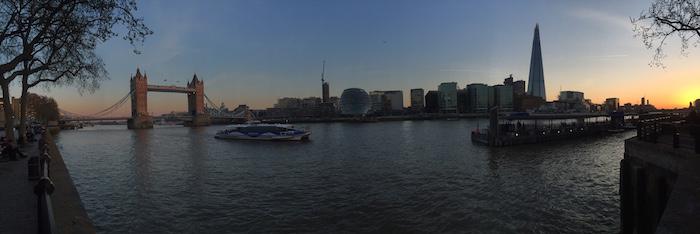
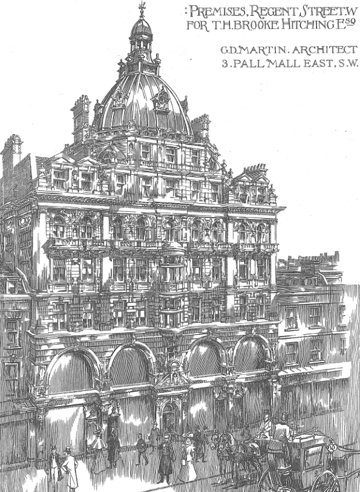
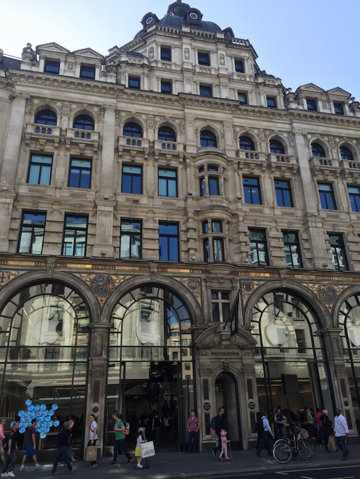
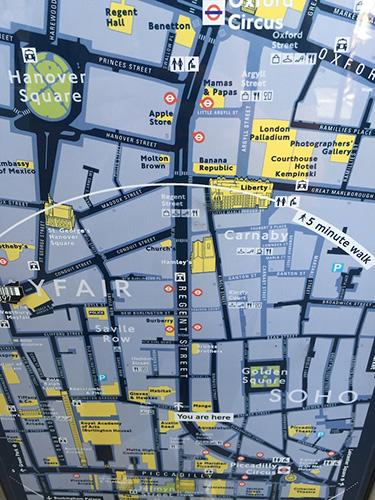
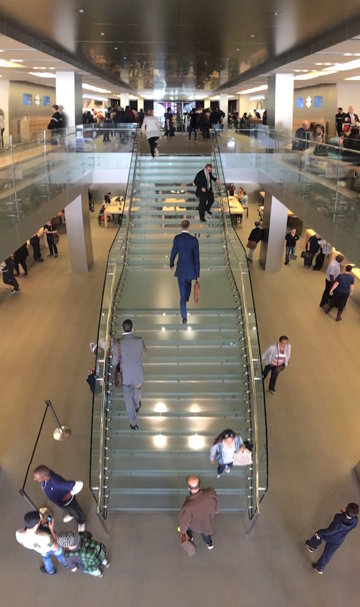
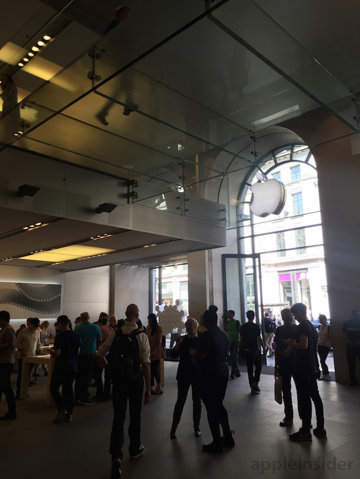
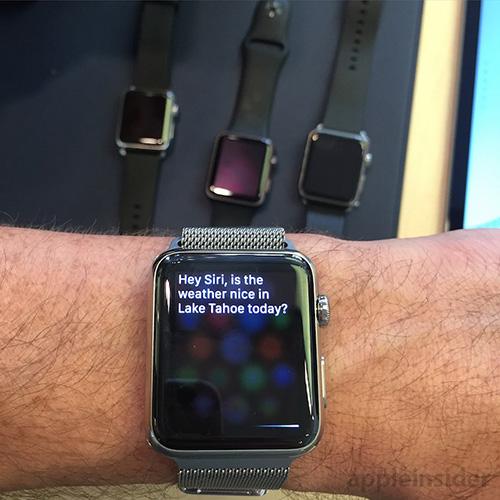
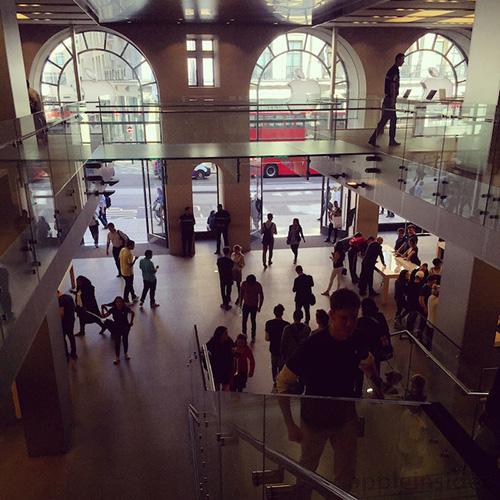


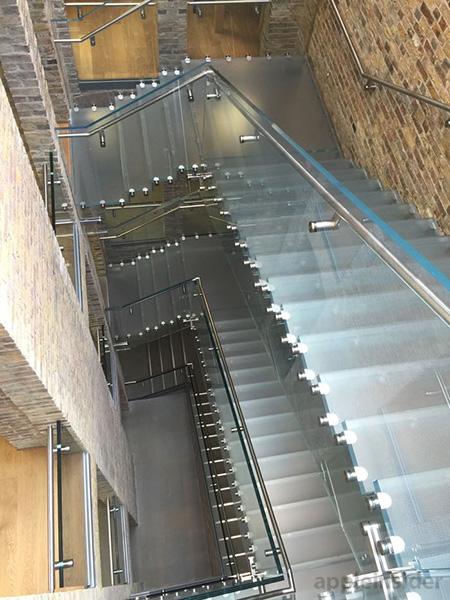


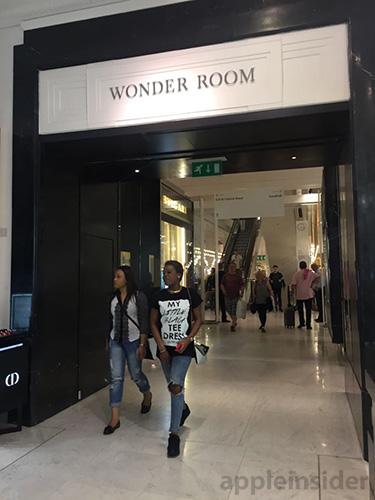

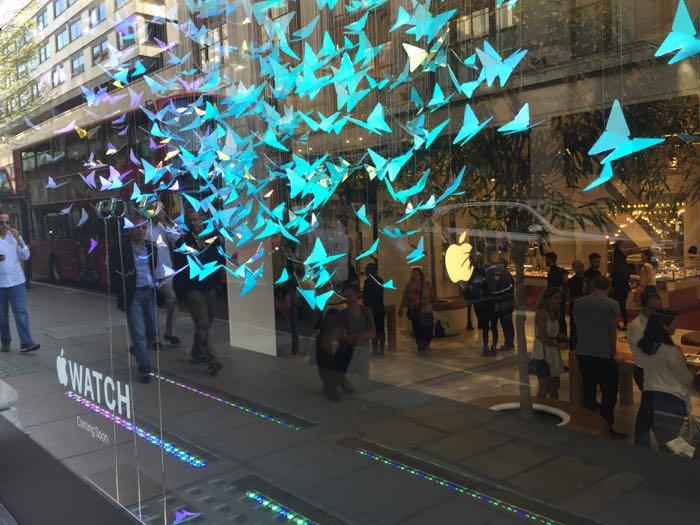
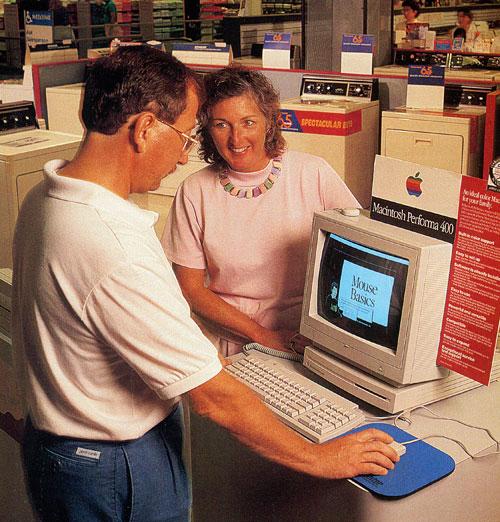
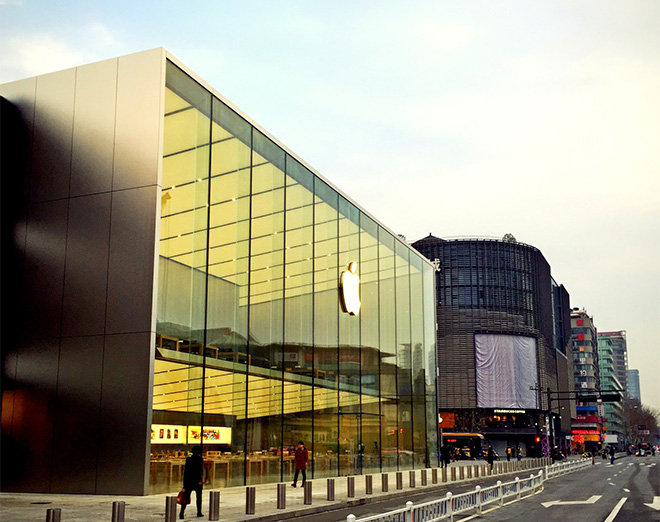




-xl-m.jpg)


-m.jpg)






 Chip Loder
Chip Loder
 Thomas Sibilly
Thomas Sibilly
 Wesley Hilliard
Wesley Hilliard
 Christine McKee
Christine McKee
 Amber Neely
Amber Neely
 William Gallagher
William Gallagher
 Malcolm Owen
Malcolm Owen









22 Comments
Apple sure picks primo locations for their stores. Here is everything you need to do to become mayor of the City of London (for anyone who thinks their own democracy is complicated): https://www.youtube.com/watch?v=z1ROpIKZe-c
Awww, you came all that way and didn't invite UK AI readers out for a beer?
Fingers crossed that Apple Pay makes it to these shores too. I can't wait to use it, especially on the London Underground.
I'm surprised Apple even wants to sell the Watch in BF's homeland. Yes, I know Jony is from there, but his countrymen have disowned him for working for that "fruit" company out in Silicon Valley and being seduced by Steve's RDF. They have come to these forums to worry about Apple's future and Jony's obsession with thinness and rounded rectangles. If only Apple was more like Microsoft and Nokia and Samsung! That would fix everything, they say.
"Fifteen ago, Apple largely relied upon store-within-a-store locations within budget-oriented, big box retail stores such as CompUSA and BestBuy. Before that, Apple's products largely sat on shelves at locations such as Sears (below) and Walmart. After nearly a decade and a half, Apple's long term retail strategy has resulted in a premium brand association for buyers around the world. " Just for the record none of the above is really all that relevant to the UK obviously. The article does a slight disservice to the history of the UK's Apple Dealerships. I would point out that the UK actually had very upscale and prestigious "Apple Centers" long before Apple Stores came along. They were privately owned, not franchises, but beautifully built out and furnished by Apple, using Bang Olufsen to be precise. So they were a partnership between the owners and Apple in effect. They were situated in prime locations and all looked virtually identical except for the individuality of the buildings. They were complete with training areas, showrooms, large on or off site repair facilities and exceptionally talented staff in all departments. I should know I part owned a couple. One of ours was in a historic, listed (as in of historical significance) building on the Royal Mile in Edinburgh. We had a full type setting bureau service and in store 2400 d.p.i. postscript film output on demand for clients bringing in their Illustrator, Quark and Pagemaker files on disk. We even had an Italian décor coffee shop upstairs, overlooking the Royal Mile, next to the training room. The coffee was free of course. The Apple Center concept was initiated to go along with the new DeskTop Publishing revolution and for a few years was a phenomenal success. John Scully visited our location personally to see how it was going as there was no such set up in the States. To this day whenever I enter an Apple Store I can see close similarities, albeit thanks to the rejuvenated Apple product lines, they are far more busy. I often think 'what if Steve had come back sooner or better yet never left!' The demise of these amazing Apple Center stores was pretty much down to Apple Computer Inc. themselves who nearly went down the tubes in the early 90's prior to Steve's return through a succession of bad management and ever worsening product. Sales just dwindled away as PCs took over with Adobe and Aldus switching to Windows. We were stuck, contractually allowed to sell Apple only. I bailed in time but I am sure many did't. Some even managed to survive. EDIT: Apple Centers should be "Apple Centres" ... my bad!
Ah yes, I really feel for these unfortunate Londoners. They are ready, willing and able to buy a $12,000 watch that will be obsolete in a year or two. Yet there is mean-spirited Apple, refusing to give them their heart's desire (for this week). Oh the unfairness of it all. Oh, the inhumanity. /sarcasm